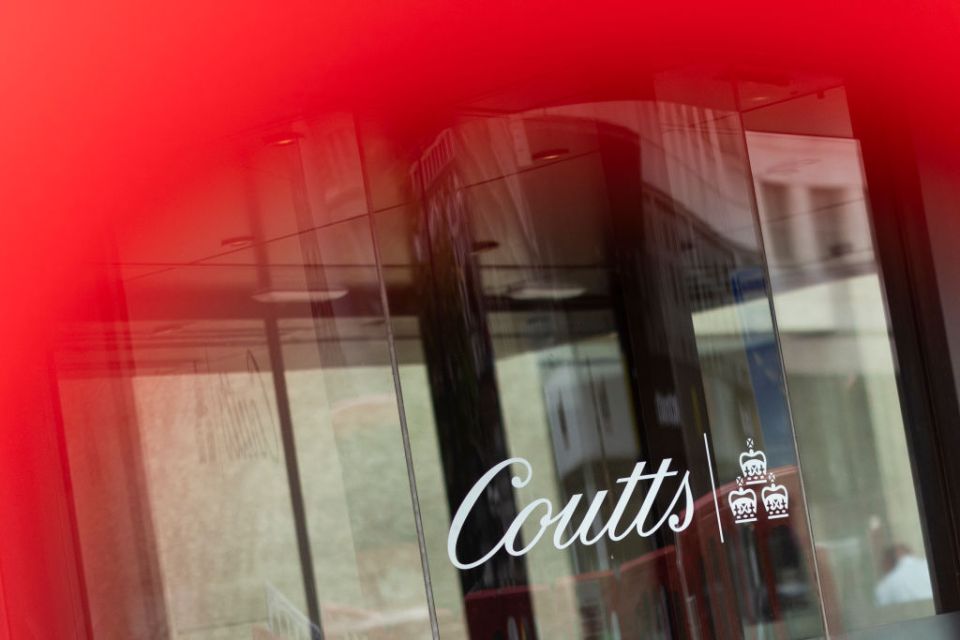Natwest learnt a hard lesson in leaving the on-camera rows to the politicians

Natwest could have won in court against Nigel Farage, but in a media war, they were doomed after the politician lost his bank account with Coutts, writes Will Cooling.
Nigel Farage may have long left the European Parliament but in GB News he’s found a new bully pulpit watched by a small circle of the British public. And for the past month he has been talking about how Coutts, a prestigious subsidiary of Natwest, closed his account in a politically motivated decision.
This erstwhile populist’s campaign to be allowed to continue to access merchant banking has successfully forced Natwest’s chief executive officer to resign. But what has been overlooked throughout, is that Farage didn’t have to hound his former bankers on television to seek redress. He could have turned to the courts even before Alison Rose took leave of her senses and disclosed his personal financial information in defiance of company policy and data protection law.
The 2010 Equality Act has a poor reputation amongst many conservatives given its role in entrenching liberal attitudes towards minorities within the workplace. But it’s a far more subtle and nuanced piece of legislation than such critics allow. Rather than just protect women and minorities, it protects everyone against discrimination based on their age, sex, race, and sexual orientation. It also protects everyone from discrimination due to their religion and other personal beliefs, albeit with some key caveats.
Rather than gossip with the BBC, Natwest would have been on firmer ground if they had played his accusations with a straight bat. They should have clearly and openly said that if Farage truly felt he had been discriminated against due his political beliefs, he should sue them for a breach of the Equality Act or enter binding arbitration on the same basis.
This would then place the burden onto Farage; to be protected under the Equality Act, a person’s belief must pass several tests. Given his reputation as one of the foremost carnival barkers in the circus that was British politics in the 2010s, Farage would face the not insignificant challenge of proving that the beliefs which caused Coutts to close his account were both sincerely held by him and part of a fully formed philosophical belief system. He would also have to prove that these beliefs were worthy of respect in a democratic society, which would require him to demonstrate that his views would not attack other people’s fundamental rights.
There is a good chance that any such legal challenge would fail at this hurdle, either because Natwest was able to prove that they didn’t discriminate against Farage due to his beliefs, or Farage being unable to prove said beliefs were protected in law.
However, should it be established that legally protected beliefs of Farage did cause Coutts to close his bank account, that does not end the matter. Under the Equality Act it is legal to discriminate against people if it’s a proportionate means to achieving a legitimate end. Given that Farage’s account was closed as part of a process to manage both a boutique brand’s reputation and the broader group’s compliance with anti-money laundering laws, it would take something truly extraordinary for them to not succeed in proving they were trying to achieve a legitimate end. That they offered him a less prestigious account with more limited access to credit, would also be strong evidence that the firm’s measures were proportionate.
But rather than rely on their strong position under the law, they fought Farage where he’s strongest. And in doing so they weakened their legal position, above and beyond Farage now having grounds to sue for breaches of data protection laws. The Equality Act has special provisions to protect those who sincerely complain about feeling that they have been the victims of discrimination, even if said discrimination is ultimately proven to not have occurred, or to have been legally justified. By responding to Farage’s allegations that they discriminated against him by revealing his personal information and causing the BBC to disparage his financial circumstances, Natwest may well have engaged in illegal victimisation of a complainant.
Nigel Farage has recently talked about entering negotiations about having his Coutts account reopened. I’d be astounded if this wasn’t accompanied by a significant compensation package. Natwest have turned controversy into a crisis by eschewing litigation for media management. All companies would do well to learn from their mistakes.
